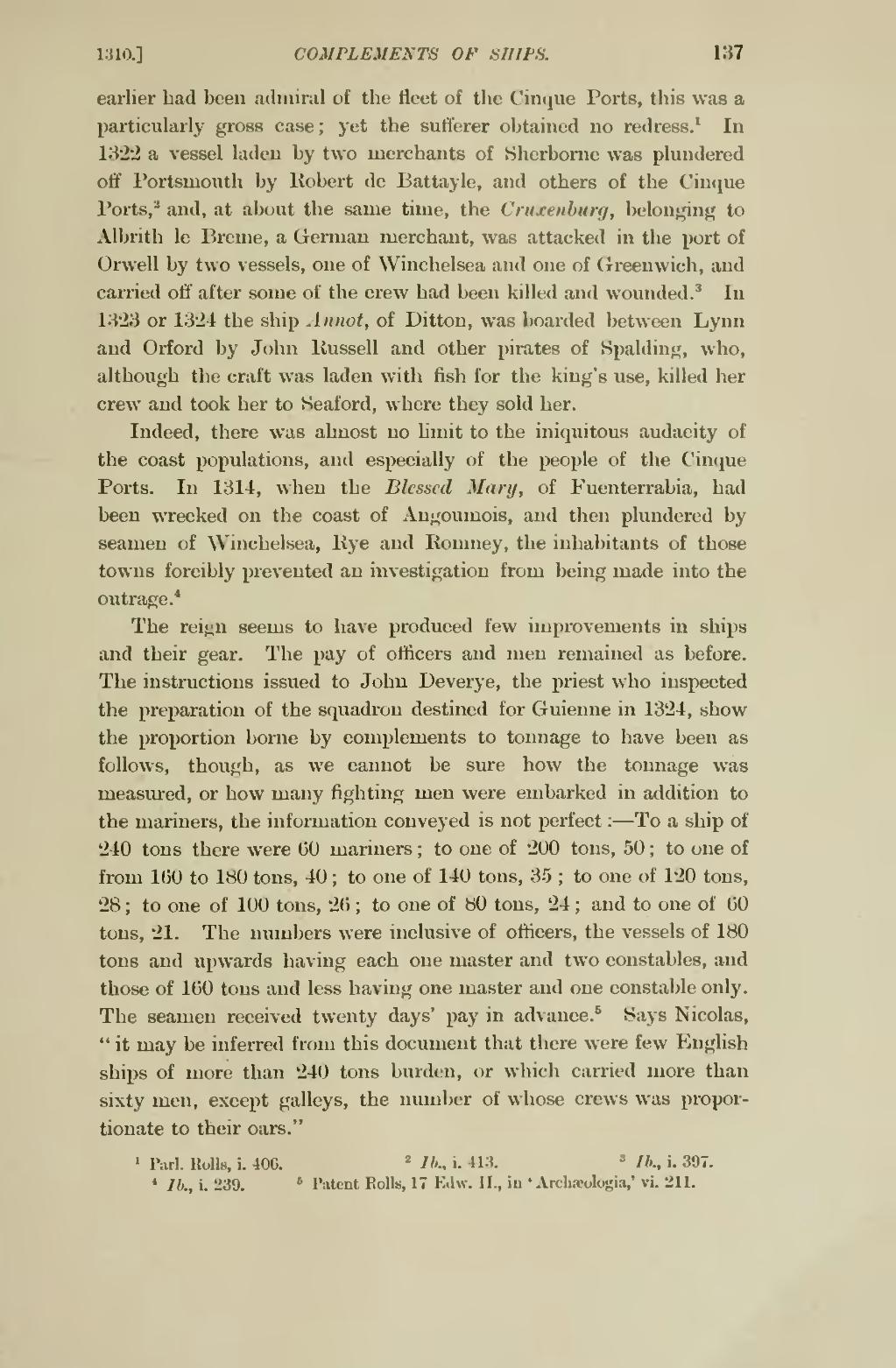earlier had been admiral of the fleet of the Cinque Ports, this was a particularly gross case; yet the sufferer obtained no redress.[1] In 1322 a vessel laden by two merchants of Sherborne was plundered off Portsmouth by Robert de Battayle, and others of the Cinque Ports,[2] and, at about the same time, the Cruxenburg, belonging to Albrith le Breme, a German merchant, was attacked in the port of Orwell by two vessels, one of Winchelsea and one of Greenwich, and carried off after some of the crew had been killed and wounded.[3] In 1323 or 1324 the ship Annot, of Ditton, was boarded between Lynn and Orford by John Russell and other pirates of Spalding, who, although the craft was laden with fish for the king's use, killed her crew and took her to Seaford, where they sold her.
Indeed, there was almost no limit to the iniquitous audacity of the coast populations, and especially of the people of the Cinque Ports. In 1314, when the Blessed Mary, of Fuenterrabia, had been wrecked on the coast of Angoumois, and then plundered by seamen of Winchelsea, Rye and Romney, the inhabitants of those towns forcibly prevented an investigation from being made into the outrage.[4]
The reign seems to have produced few improvements in ships and their gear. The pay of officers and men remained as before. The instructions issued to John Deverye, the priest who inspected the preparation of the squadron destined for Guienne in 1324, show the proportion borne by complements to tonnage to have been as follows, though, as we cannot be sure how the tonnage was measured, or how many fighting men were embarked in addition to the mariners, the information conveyed is not perfect:—To a ship of 240 tons there were 60 mariners; to one of 200 tons, 50; to one of from 160 to 180 tons, 40; to one of 140 tons, 35; to one of 120 tons, 28; to one of 100 tons, 26; to one of 80 tons, 24; and to one of 60 tons, 21. The numbers were inclusive of officers, the vessels of 180 tons and upwards having each one master and two constables, and those of 160 tons and less having one master and one constable only. The seamen received twenty days' pay in advance.[5] Says Nicolas, "it may be inferred from this document that there were few English ships of more than 240 tons burden, or which carried more than sixty men, except galleys, the number of whose crews was proportionate to their oars."
